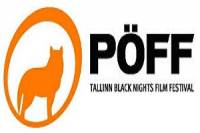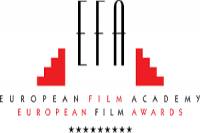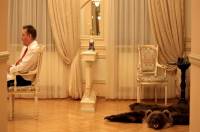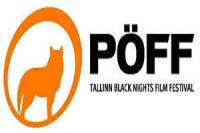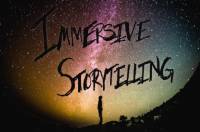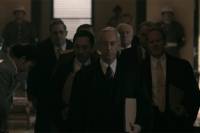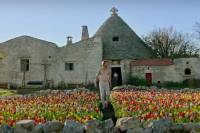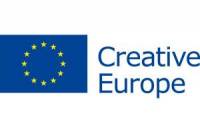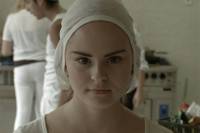Tallinn Black Nights Film Festival will be collecting donations for development of the festival
Festivals 15-11-2017
The Tallinn Black Nights Film Festival (PÖFF), one the fifteen FIAPF-accredited competitive film festivals in the world which will be held for the 21st time this year, will be collecting donations for development of the festival in addition to the support from businesses, the state, and the local government. One of the first goals is to translate as many films as possible into Estonian and Russian. So far, a third of the films screened at PÖFF have been translated into Estonian and Russian.
“PÖFF has been operating for years with a minimum budget, but maximum programme,” said Tiina Lokk, Director and Head of Programme of PÖFF. “To ensure a high standard of the festival and to bring the films to the audience with a high quality, we would like to involve the fans of PÖFF – to give them an opportunity to donate, to participate in organising the festival. PÖFF is an international film festival and the official language of the festival is English, due to the lack of funds, however, we have not been able to translate many of the films screened into Estonian and Russian. We would like to be closer to our home audience for the stories told by the films to reach the audience as convincingly and comprehensibly as possible.”
According to Tiina Lokk, the budget has allowed to translate a third of the films screened within the framework of the festival programme to Estonian or Russian. “We have received a lot of feedback about this and, due to requests from the audience, we will start collecting money for translating films for the next year’s festival. Translation of every single film is accompanied by remarkable expenses, which cannot be recovered simply by charging higher ticket prices,” explained Tiina Lokk. “If our idea is supported by the audience, we also intend to develop other activities”.
For the festival to be able to hold on to its position among some of the top film festivals in the world, which has been achieved through many years of work, and to continue its development, constant help is needed from supporters. As of this year, everyone interested who cares about cinematography and about expanding the world can help to develop, improve, and grow the festival. To do so, a desired amount of money can be transferred directly to the account of the festival by adding the comment “Toetan PÖFFi” (“Supporting PÖFF”) via the main menu on the website of PÖFF. Anyone interested can support the festival – private individuals as well as companies.
The Tallinn Black Nights Film Festival (PÖFF) is an international film festival, which has been organized since 1997. As of 2014, PÖFF is the only festival in Northern Europe that has been given by FIAPF (International Federation of Film Producers Associations) the competitive status. The festival consists of various different events, including two sub-festivals (Just Film, PÖFF Shorts) and international film industry event Industry@Tallinn, which bring films and filmmakers from more than 70 countries from America to Asia to Tallinn every year.
CONTACT
Hannes Aava, coordinator of international communication, +372 5552 9211
/ This email address is being protected from spambots. You need JavaScript enabled to view it.
The European Film Academy announces the first winners who will be honoured at this year’s European Film Awards. A special seven-member jury convened in Berlin and, based on the EFA Selection list and the additional film entries, decided on the winners in the categories cinematography, editing, production design, costume design, hair & make-up, composer and sound design.
Interview: Petr Horký, director of The Russian Job – a film in the Competition for Mid-Length Documentary at IDFA 2017
Press releases 14-11-2017
A film set in Russia about Lada automobile production may not sound like the most riveting topic for a documentary. But Petr’s Horký’s directorial debut is a fascinating and wryly amusing tale. Set in Tolyatti, the city where the Lada factory is based, The Russian Job follows the attempts of hard-hitting Swedish businessman, Bo Andersson, to revolutionise the once-thriving company and drag it by the collar into the 21st century. Through intimate – and beautifully shot – glimpses into the lives of both Andersson and those factory workers he is antagonizing, we learn just how monumental his task is. He doggedly competes with corruption, xenophobia and more than anything, the grim Soviet shadow that still looms over Europe’s biggest country.
The Russian Job will be a part of the delegation led by the Institute of Documentary Film and we caught up with him to tell us all about it.
You've made a Czech film about the Russian Lada company. How did that happen?
In the fall of 2014 I was working as a journalist for one Czech economic newspaper and I was invited to visit the Lada factory in Tolyatti to write an article about it. There I met this pragmatic, hard-working Swedish manager who was bringing about very dramatic changes to this rather sleepy place. A man of the capitalist world trying to westernize a post-Soviet relic. I wrote the article, but the theme and the images stuck in my head. With my friend, who is a photographer, we asked the manager if we could make a documentary about this reform process. And he said yes.
What were the most surprising discoveries for you personally during your filming?
It surprised me how everything in the city is revolving around the factory. Almost everyone you meet has in his life worked in the plant or at least knows someone there. At every step you can feel that the city was built around the factory. There is a huge sports stadium, summer and winter resorts for the workers, the factory even has its own TV channel. And most people in Tolyatti remember the communist past as the best time of their life.
The film shows the hard-hitting business side of Bo Andersson. Do you think you managed to portray his more sensitive side also?
Mr Andersson is very straight forward in his attitude towards his employees and his task, but at the same time he is a very careful person. We got much closer than any other journalist, we had very open discussions with Mr Andersson, which is unusual for people of such high corporate position. But at the same time Mr Andersson was always very aware of the camera, we never really caught him off-guard.
In what way does the film explore Russian stereotypes?
I think you are being polite! You could even say that we exploit the Russian stereotypes! In our film the locals are sentimental of their past, sometimes they are lazy, sometimes proud, they like to do things for display, white wash. But they also can enjoy their time, they have their way of life, they dip in the frozen water and they have a good time rowing a boat on the Volga river no matter what regime comes.
How would you describe the atmosphere of the film?
I am now too close to the film and can’t see it clearly anymore, but at times I see a comedy with tragical subtones and at other times a tragedy with a comical streak. So it’s probably something in between.
The film features the Walruses – an eccentric group of Russians who swim in ice cold water. Why did you decide to include them?
The bathing club used to be part of the Avtovaz factory. We thought the micro story of the snowblower could illustrate the complicated relations between the foreign managers and the locals.
Do you find any similarities with the life and mentality of people in the Czech Republic?
I think in the Czech Republic you can also find many people who live in the past and in a state of collective denial, but it is not as concentrated as in Tolyatti.
The film is beautifully shot. What are your filmmaking influences?
I think this is a question that should be answered by our cinematographer Milan Bureš. He is a photographer and that creates a lot of the style. 99 percent of the shots were taken from a tripod and carefully composed. This style has its limitations, but also big advantages. We didn’t have any particular influence in our mind, but many people compare the style to the films of Ulrich Seidel. We also like the style of Vitalij Manskij.
What have you got planned next?
I don’t have any specific plans, but I would like to get back to the original question: where is the border between the East and the West?
Petr Horký
Studied journalism in Prague. Moved to London to graduate in photojournalism, but never pursued career as a photographer. Moved to Berlin to learn German, then to Prague. Worked for a daily economic newspaper. Spent year as a blogger travelling around Asia. After returning home, found a job at an economic weekly magazine which enabled him to go deeper in his stories. One story lead him to Russia where he encountered a subject he thought worthy to be made into a documentary film. Crucial role in this decision one meeting with his friend, photographer Milan Bureš who agreed to become the cameraman of the film.
The Russian Job is produced by Martin Jůza - Krutart, co-produced by Kateřina Ondřejková - Czech Television
Sales: Rise and Shine World Sales
Black Nights Film Festival introduces the lineup of the new programme Rebels With A Cause
Festivals 14-11-2017
The new section, dedicated to films that are experimental or unconventional in form or style, is a competition programme with an audience award. The first edition will see 10 films, with one having its world and another its international premiere.
The selection includes the world premiere of Riga (Take One) by the French director Siegfried, a free-style composition about passion and fine arts, studied through the perspective of four women in Riga, Latvia. The rhythm of the films is based on the rules of a jazz partition.
Mònica Rovira Herrero presents her film To See a Woman, an intense chronicle of a relationship in which she also plays the protagonist, that will have its international premiere at the Black Nights Film Festival.
The programme also includes the restored version of Jean-Luc Godard’s The Rise & Fall Of a Small Film Company, the Venice-premiering The Wild Boysdirected by Bertrand Mandico, the landscape-observation essay The New Wild: Life in the Abandoned Lands by director Christopher Thompson, the Russian satire Ice Hole directed by Andrey Silvestrov. The montage of magical moments in other films, depicting cinema-going in Have You Seen My Movie? by director Paul Anton Smith and the The Little Match Girl by director Alejo Moguillansky, who intertwines musical rhythms and elements into the visual storytelling of the film.
According to the programme’s coordinator Javier Garcia Puerto the programme consists of works of filmmakers who bring up new perspectives by challenging cinematic borders. „Rebels With a Cause“ will present edgy films made by bold filmmakers, who nurture the field of cinematic language by pushing the limits and reaching new boundaries in the art of storytelling with sound and image. While sticking to the narrative they bend the rules and twist perceptions, and by doing so they make us as an audience face a challenge. Audiences will also be able to express their emotions by selecting their favourite film as part of a collective jury.”
Have You Seen My Movie?, UK, 2016, dir Paul Anton Smith
Ice Hole (Prorub) Russia, 2017, dir Andrei Silvestrov
Riga (Take One), France, 2017, dir Siegfried
The Little Match Girl (La vendedora de fósforos), Argentina, 2017, dir Alejo Moguillansky
The New Wild: Life in the Abandoned, Austria-Italy-UK, 2017, dir Christopher Thomson
The Rise & Fall of a Small Film Company (Grandeur et décadence d’un petit commerce de cinéma), France, 1986, dir Jean-Luc Godard
The Wild Boys (Les garçons sauvages), France, 2017, dir Bertrand Mandico
To See A Woman (Alguna Cosa), Spain-Italy, 2017, dir Mònica Rovira
The question of storytelling and corresponding “grammar” comes up each time a new form of immersive media sees the day of light. This was the case for stereoscopic 3D, and, without surprise, this is now the case for all currently-hot forms of immersive media, such as VR, AR, MR, XR, and 360°, all preferably with a touch of “3D” to spice them up.
At Stereopsia's Professional conference (PCON), the "story” will begin with keynote speaker Frank Rose (Columbia University, USA) on “A new grammar of storytelling for the digital age”. To be ready to immerse yourself in his presentation, you can prepare yourself by reading his book “The Art of Immersion”, … only 354 pages long!
This keynote presentation will be followed by talks on how to tell stories for immersive medias, by Miłosz Hermanowicz (Freelance Stereographer, Poland), Björn-Olav Dozo (University of Liège, Belgium), Stephanie Riggs (Sunchaser Entertainment, USA), Pola Brokiewicz (Academy of Fine Arts of Łódź, Poland), and Alvin Ho Young (Koncept VR, USA). As for all other PCON speakers, you’ll find their photos and short biographies on the PCON webpage.
VILNIUS: Lithuanian production company Artbox is celebrating the nomination of Tokyo Trial for an International Emmy. Artbox provided services for the four-part historical series, which was shot mainly in Lithuania.
For films shot in Lithuania – prestigious International Emmy nomination and success at International Film Festivals
Press releases 13-11-2017Lithuania is an attractive destination for those foreign filmmakers who come here seeking not only flexible prices for film production and services but also a professional crew and suitable locations. Last year, Lithuania attracted the highest number of foreign productions since the introduction of its 20 percent tax incentive in 2014. Worldwide known directors, actors and producers work with the projects partly shot in Lithuania. Films produced in this country have also been noticed on the international film market. The Founder and producer of a Lithuanian production company, ARTBOX, Kestutis Drazdauskas shares his International co-production experience.
Come to Warsaw and join Creative Europe Desk Poland and National Film Archive – Audiovisual Institute for Images That Move – European Conference on Film Education on November 21.
During the event, presentations will be delivered by leading Polish and European experts in film education. Moreover, the participants will have an opportunity to take part in workshops conducted by representatives of organisations involved in European projects co-financed within Film Education scheme of Creative Europe’s MEDIA Sub-programme. Keynote speech on creative media education will be delivered by prof. Wanda Strauven, Goethe-Universität Frankfurt. During panel discussions European experiences in the field of partnerships building among institutions as well as inclusion of various groups of recipients will be discussed.
The participation in the event has been confirmed by European experts: prof. Wanda Strauven (Goethe-Universität Frankfurt), Bernard McCloskey (Northern Screen Ireland), Simone Fratini (Fondazione Cineteca di Bologna), Ginte Zulyte (Meno Avilys), as well as, among others, prof. Bogusław Skowronek (Pedagogical University in Cracow), Joanna Zabłocka-Skorek, phd (KinoSzkoła Programme Director), Ewelina Waląg (School Filmoteque Programme Leader).
The conference will take place at the premises of National Film Archive – Audiovisual Institute in Warsaw, Walbrzyska St. 3/5.
Presentations, lectures and panel discussions taking place in ZIEMIA OBIECANA Conference Room will be translated simultaneously.
For those interested in workshops, previous registration is required by choosing the preferable option in registration form. Meetings with European experts taking place in rooms Minimax 1, 2 and Wielka Gra will be held in English.
Participation in the event is free of chargé, however due to limited number of seats, previous registration is required. Registration form is available at http://bit.ly/ITM_zapisy.
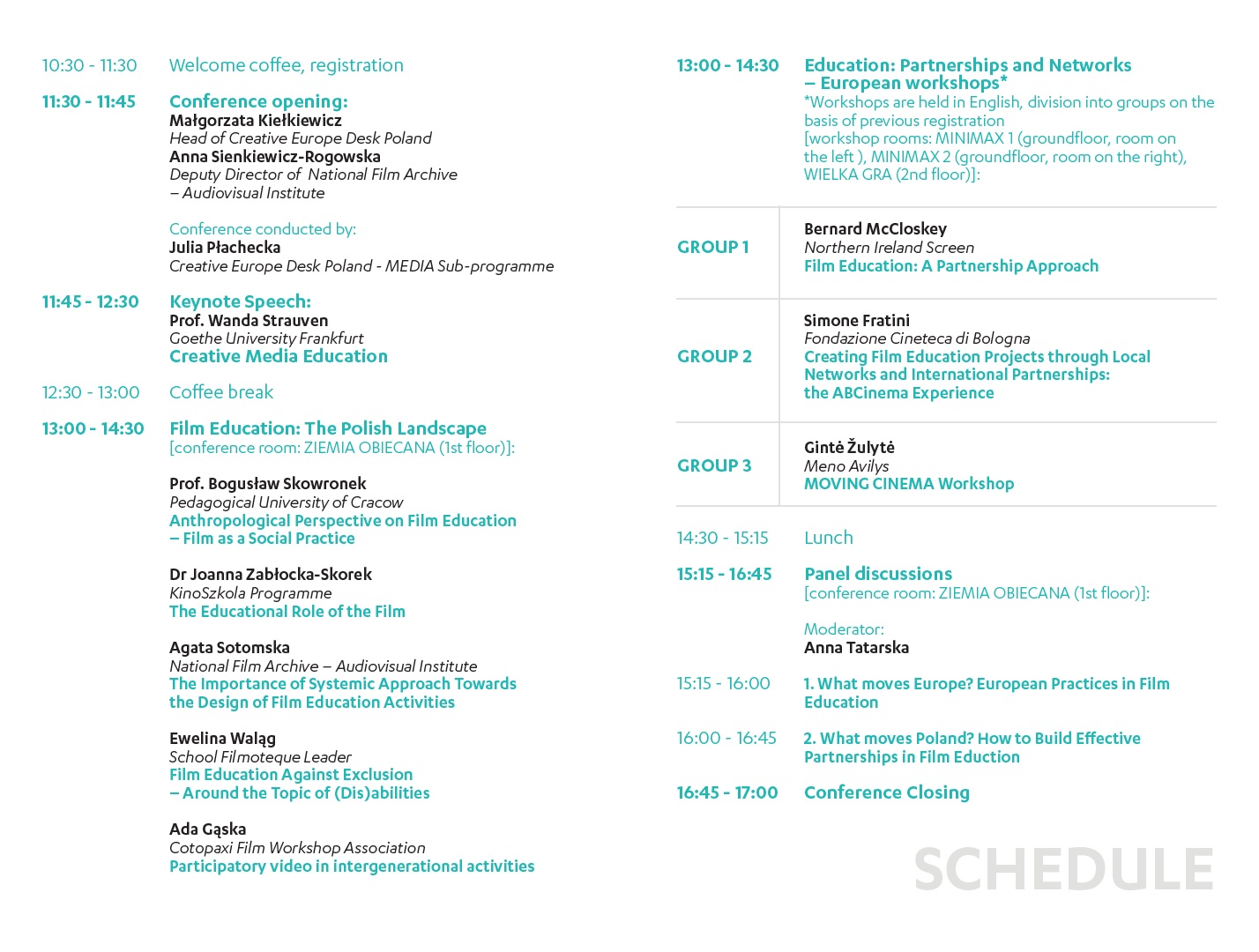
Slovenian production grants announced by the Slovenian Film Center in September 2017
Czech films are having a banner year at IDFA.

